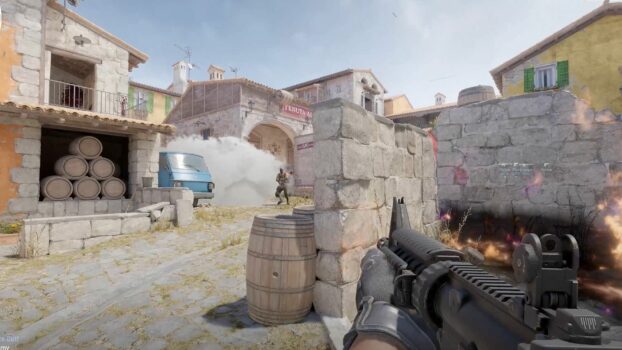If you’ve dived into EA SPORTS FC (formerly known as FIFA) or the legendary CS:GO, you already know there’s more to these games than just fancy footwork or sharp shooting. Beneath the surface, both games feature intricate in-game economies that are just as crucial as your controller skills.
Managing these economies can mean the difference between crushing your opponents and getting crushed yourself. Let’s break it down.
Building Your Ultimate Team in EA SPORTS FC: It’s All About the Coins, Baby
In EA SPORTS FC, the real game starts before you even hit the pitch. The Ultimate Team mode isn’t just about picking your favorite players; it’s about building a squad that’s going to dominate on all fronts. And like in real life, top talent doesn’t come cheap. This is where the in-game economy comes into play.
Every match, every auction, every pack you open is a financial decision. You earn coins (the game’s currency) for playing matches, completing objectives, and trading on the transfer market. But how you spend those coins is what really matters. Do you save up for that superstar who could elevate your team to the next level? Or do you spread your wealth across multiple solid players to build a well-rounded squad?

The key here is knowing the market. Players’ prices fluctuate based on demand, performance, and even real-world events. It’s not just about buying the best; it’s about buying the best at the right time. Think of yourself as a manager and a stock trader rolled into one. And let’s be honest, there’s something incredibly satisfying about snatching up a bargain and watching their value skyrocket.
But don’t forget about consumables—contracts, healing cards, chemistry styles—all these little things add up. Managing these microtransactions efficiently can give you that extra edge, keeping your team fit and ready for action while not bleeding your bank dry.
CS:GO’s Buy System: When Economy Is Literally Life or Death
Switch gears to CS, where the economy system takes on a more immediate, do-or-die significance. Every round you play, whether in Casual or Competitive, your team’s financial health determines what weapons, armor, and utility you can afford in the next round. Make a few bad buys or lose a crucial round, and you might find yourself stuck with nothing but a pistol while your enemies are fully geared up.
Here, the in-game economy isn’t just a backdrop—it’s the heartbeat of the game. Winning rounds earns you more money, but even losing has its perks, giving you a bit of cash to keep you in the fight. The real strategy comes in deciding when to go all-in with a full buy or when to save (or “eco,” as the pros call it) to afford better equipment in the future.

Communication with your team is key. A well-coordinated buy strategy can make or break a game. Do you all buy rifles and risk everything for the next round win? Or do you play it safe, go for a half-buy, and try to outsmart your opponents with superior tactics instead of superior firepower?
And let’s not forget about the economic mind games you can play. Forcing your opponents into an eco round by winning a string of rounds can give you a massive advantage, knowing they’re likely under-equipped. But the reverse is also true—underestimating an opponent during their eco can lead to a devastating upset. The balance of risk and reward is what makes CS’s economy system so thrilling.
Plus, let’s talk about knife skins—a key part of CS’s culture. While some knife skins can cost a fortune, making them out of reach for many players, there are plenty of affordable options that still let you customize your in-game experience. Sites like BloodyCase offer a range of cheap knife skins, so even if your in-game economy is tight, your style doesn’t have to suffer. These budget-friendly skins let you personalize your loadout without breaking the bank, proving that you can still look good while strategizing your way to victory.

Adding Depth and Strategy Through In-Game Economies
Both EA SPORTS FC and CS are prime examples of how in-game economies add layers of depth to gameplay. They force you to think not just about the immediate, but also the long-term. It’s not just about who’s got the fastest reflexes or the best tactics; it’s also about who can manage their resources most effectively.
In EA SPORTS FC, the thrill comes from building a team that’s not just good on paper but performs on the pitch. Every coin you spend, every player you buy, is a step closer to creating your dream team—or a costly mistake that sets you back.
In CS:GO, it’s all about survival. Managing your money efficiently could be the difference between dominating the scoreboard and staring at it from the bottom. The economy system adds a layer of strategy that keeps even the most seasoned players on their toes.
So, the next time you’re firing up your console or PC, remember: it’s not just a game. It’s an economic battlefield where every coin, every dollar, every buy decision counts.
 FIFA Infinity The Absolute FIFA Site
FIFA Infinity The Absolute FIFA Site



